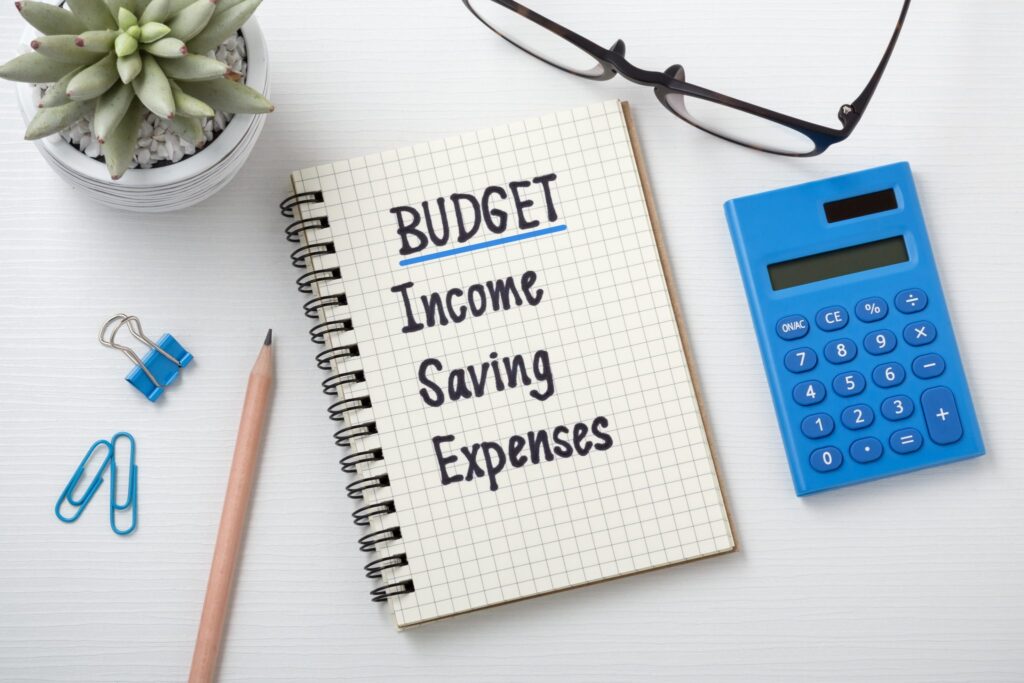
In today’s fast-paced world, many individuals are dreaming of retiring early and enjoying the freedom that comes with financial independence. Early retirement is a concept that goes beyond simply leaving the workforce at a young age – it is a lifestyle choice that requires careful planning and preparation. By understanding the concept of early retirement and the benefits it offers, as well as the importance of financial independence, you can take the necessary steps to achieve your goal of retiring sooner rather than later.
Understanding Early Retirement
Early retirement may seem like an elusive goal, but with proper planning with retirement planning blogs, it can become a reality. The concept of early retirement involves leaving the workforce before the traditional retirement age of 65. This allows individuals to enjoy their golden years while still being active and pursuing their passions. The benefits of early retirement are numerous, and they extend far beyond just having more leisure time.
Many people dream of early retirement as a time to explore new opportunities and make the most of their freedom. It’s a chance to break away from the routine of a traditional career and embrace a lifestyle that aligns more closely with personal values and interests. Early retirement opens up a world of possibilities, from embarking on exciting adventures to dedicating time to meaningful projects that may have been put on hold during working years. Click here for maximising your nest egg with expert guidance.

The Concept of Early Retirement
Early retirement is not about simply quitting your job at a young age. It is a calculated decision that involves careful consideration of various factors such as financial stability, health, and personal goals. It requires a proactive approach to financial planning and saving.
Financial independence is a key aspect of early retirement, as it provides the freedom to make choices based on personal fulfillment rather than financial necessity. Achieving early retirement involves building a robust financial portfolio through investments, savings, and potentially alternative income streams. It’s about creating a sustainable financial foundation that can support a fulfilling and secure retirement lifestyle.
Benefits of Early Retirement
One of the most significant benefits of early retirement is the freedom to pursue your passions and interests. Whether it’s traveling, starting a new business, or spending more time with loved ones, early retirement can provide you with the time and resources needed to enjoy life to the fullest. Additionally, retiring early means you can avoid the daily stresses and pressures of the corporate world, allowing for a more relaxed and fulfilling lifestyle.
Early retirement also offers the opportunity to focus on personal well-being and health. With more time for physical activity, healthy eating, and stress management, retirees can prioritize their health and wellness in ways that may not have been possible during their working years. This focus on self-care can lead to improved overall health and longevity, enhancing the quality of life in retirement.
The Importance of Financial Independence
In order to achieve early retirement, financial independence is crucial. Financial independence means having enough savings and investment income to cover your living expenses without relying on a traditional job. This requires careful planning, wise investment strategies, and a commitment to saving.
Financial independence is not just about accumulating wealth; it’s about gaining control over your financial future. It empowers individuals to make choices that align with their values and goals, rather than being dictated by financial obligations. This sense of autonomy can lead to a more fulfilling and purpose-driven life, where work becomes optional rather than mandatory.

Defining Financial Independence
Financial independence is the state of having enough passive income and investments that generate sufficient funds to support your desired lifestyle. It liberates you from financial constraints and allows you to make choices based on personal fulfillment rather than monetary considerations. Achieving financial independence requires a realistic assessment of your financial status and goals.
Moreover, financial independence is not a one-size-fits-all concept. It is highly personal and varies depending on individual circumstances and aspirations. For some, it may mean being able to travel the world without worrying about money, while for others, it could be as simple as having the freedom to pursue a passion project without financial stress.
The Role of Financial Independence in Early Retirement
Financial independence is the foundation upon which early retirement is built. By achieving financial independence, you can have the freedom to retire early and enjoy the fruits of your labor. It eliminates the need to rely on a paycheck and provides the security and peace of mind needed to pursue your retirement dreams.
Early retirement is not just about escaping the daily grind; it’s about designing a life of purpose and fulfillment on your own terms. Financial independence acts as a safety net during retirement, ensuring that you can maintain your desired standard of living without worrying about outliving your savings. It opens up possibilities for new adventures, learning opportunities, and giving back to causes that are important to you.
Steps to Plan for Early Retirement
Planning for early retirement requires a systematic approach. By following these steps, you can set yourself on the path towards financial independence and early retirement.
Assessing Your Current Financial Status
The first step in planning for early retirement is to assess your current financial situation. Analyze your income, expenses, savings, and investments. Determine how much you will need to retire comfortably and calculate the gap between your current savings and that target amount. This assessment provides a clear picture of where you stand financially and what steps you need to take to bridge the gap.
When assessing your financial status, it’s important to consider not only your current assets and liabilities but also any potential future expenses. For example, if you plan to travel extensively during retirement, you’ll need to account for the costs of transportation, accommodation, and other related expenses. By taking a holistic approach to your financial assessment, you can ensure that your retirement plan is comprehensive and realistic.
Setting Your Retirement Goals
Once you have assessed your financial situation, it’s time to set your retirement goals. Identify the age at which you want to retire and the lifestyle you envision during your retirement years. Determine the amount of money you will need to support that lifestyle. Setting clear and achievable retirement goals is essential for developing a plan to reach those goals.
When setting your retirement goals, it’s important to consider not only the financial aspect but also your personal aspirations. Retirement is not just about having enough money; it’s about living a fulfilling and meaningful life. Think about the activities you want to pursue, the hobbies you want to indulge in, and the contributions you want to make to society. By aligning your retirement goals with your passions and interests, you can create a retirement plan that brings you joy and satisfaction.
Creating a Savings Plan
With your retirement goals in mind, create a comprehensive savings plan. Determine how much you will need to save each month and develop a budget that aligns with your savings goals. Look for ways to cut unnecessary expenses and allocate those savings towards your retirement fund. Consider automating your savings through automatic transfers to ensure consistent contributions to your retirement accounts.
When creating your savings plan, it’s important to consider the different investment options available to you. While saving money is crucial, investing wisely can help your savings grow significantly over time. Research different investment vehicles such as stocks, bonds, mutual funds, and real estate, and consider diversifying your portfolio to minimize risk. Consulting with a financial advisor can provide valuable insights and guidance in creating an effective savings plan tailored to your specific needs and risk tolerance.

Investment Strategies for Early Retirement
Building a solid investment portfolio is crucial for achieving financial independence and early retirement. By diversifying your investments and understanding the risks and returns associated with different investment vehicles, you can maximize your savings and grow your wealth.
Early retirement is a goal many individuals aspire to, and having a well-thought-out investment strategy is a key component in making that dream a reality. It involves careful planning, disciplined saving, and strategic investing to ensure a comfortable and secure financial future.
Diversifying Your Investment Portfolio
Diversification is the key to managing risk and optimizing returns. Spread your investments across different asset classes such as stocks, bonds, real estate, and alternative investments. This diversification strategy helps protect your portfolio from volatility in any one asset class and increases the potential for long-term growth.
Furthermore, within each asset class, consider diversifying further by investing in different industries or geographic regions. This additional layer of diversification can help mitigate risks associated with economic downturns or sector-specific challenges, providing a more stable and resilient portfolio.
Understanding Risk and Return
When it comes to investing, it’s important to understand the relationship between risk and return. Higher-risk investments typically offer the potential for higher returns, but they also come with a greater chance of loss. It’s crucial to strike a balance between risk and return that aligns with your risk tolerance and long-term goals. Consider consulting with a financial advisor to develop an investment strategy that fits your needs.
Moreover, consider incorporating risk management techniques such as stop-loss orders or asset allocation strategies to further safeguard your investments. These tools can help protect your portfolio during market downturns or unexpected events, ensuring that your financial goals remain on track despite potential fluctuations in the market.
Managing Expenses and Debt
In addition to saving and investing, managing expenses and debt plays a critical role in achieving early retirement. By reducing and eliminating debt and cutting down on unnecessary expenses, you can free up more money to save and invest.
Reducing and Eliminating Debt
High-interest debt, such as credit card debt, can hinder your progress towards early retirement. Develop a debt repayment plan and prioritize paying off your debts. Consider consolidating high-interest debts or negotiating lower interest rates to reduce the amount of interest you pay over time. By eliminating debt, you can redirect that money towards your retirement savings.
Cutting Down on Expenses
Take a close look at your expenses and identify areas where you can cut back. Consider reducing discretionary spending, such as eating out or buying luxury items. Look for opportunities to save on common expenses, such as utilities, insurance, and entertainment. Every dollar saved is a dollar that can be directed towards your early retirement goals.
In conclusion, achieving early retirement and financial independence is a goal that requires careful planning, disciplined saving, and wise investing. By understanding the concept of early retirement, the benefits it offers, and the importance of financial independence, you can take the necessary steps to retire sooner and enjoy a fulfilling retirement. Assess your current financial status, set clear retirement goals, create a savings plan, and invest wisely. Additionally, manage your expenses and debt to optimize your savings. With a commitment to early retirement planning, you can achieve financial independence and make your dreams of an early retirement a reality.




